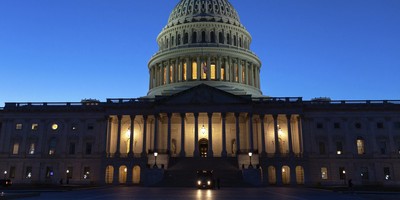I hate to say it, but both John McCain and Barack Obama are wrong in their approaches to Iraq. On Aug. 18, McCain said, "The lasting advantage of a peaceful and democratic ally in the heart of the Middle East could still be squandered by hasty withdrawals and arbitrary timelines." A day later, Obama mused, "Iraqi inaction threatens the progress we've made and creates an opening for Iran and the `special groups' it supports."
Before I explain, it's worth noting that the era in which the United States has the dubious luxury of focusing on one kind of war at a time, plus Afghanistan, plus too much face time in that so-called "peace process," is over.
It almost seems like bad form to critique the Iraq policies of the men who would be president. Iraq has taken a back seat to Georgia in driving the news cycle, while the candidates are having enough trouble this month picking veeps and keeping up with events coming out of Russia.
But Iraq is probably the direct catalyst of the transformation in stature and capacity of the United States on the world stage, even if the recent crisis in Georgia is what revealed it.
That transformation has manifested itself in what is a new experience for the United States: We are being ignored. Of course, we are used to being reviled, even as we are also used to seeking approval. We are used to being accommodated, taken advantage of, and even, on historic occasions, feared. We are not used to being ignored, and especially not by Russia.
So, what's going on? Here's the short answer via another question: Would Russia be ignoring the United States if practically every U.S. man under arms (even every woman) weren't irretrievably tied up on the quixotic mission of transforming Iraq into a Western-style democracy?
Recommended
I don't think so. We can't follow Teddy Roosevelt's advice to speak softly and carry a big stick if our stick is stuck in sand. I'm not sure if we've become a superpower with the power shut off, exactly, but I do know that Russia is always happy to advance under cover of darkness.
But back to Iraq. McCain, of course, is wrong for believing Iraq is a "democratic ally," peaceful or otherwise. Obama is wrong for believing Iraq is able or even cares to block the "opening" for Iran and the "special groups" or militias, it supports. And the disastrous implication behind both assessments is that there is something worthwhile the United States can reasonably expect to extract from its costly Iraqi investment -- namely, a democratic ally and bulwark against Iran.
I don't believe this for many reasons, most of which I've written about before. My sense is that a democratic ally and bulwark against Iran doesn't enshrine sharia in its constitution; doesn't have a prime minister practically itching, as Nouri al-Maliki put it to Der Spiegel, to "prosecute crimes committed by U.S. soldiers against our population"; doesn't have 42 percent of a population which, according to a 2008 BBC poll, believes attacks on U.S. troops are acceptable; doesn't make the U.S. soldiers who protect it pay OPEC prices at the pump; doesn't express solidarity with Hezbollah; doesn't participate in the Arab boycott of Israel. And that's just for starters.
Now, thanks to a Middle East Media Research Institute (MEMRI) report on Iraqi reactions to negotiations over the terms of the continued presence of U.S. troops in Iraq -- the long-haggled-over Status of Forces Agreement -- we have even more Iraqi attributes to factor into our grand strategy, if only our leaders would pay attention.
According to MEMRI's analysis of Arab press reports this summer, "the agreement was intensely opposed by most elements in Iraqi politics," with Prime Minister Maliki going so far as to visit Iran in June "to assure the Iranians that the agreement with the U.S. would not be detrimental to Iran. During the visit, he stated that all influential political elements in Iraq supported rapprochement with Iran in all areas, and that Iraq would not allow its territory to be used as a base for attacks against Iran."
Well, that's nice -- for Iran. Now, tell me again how U.S. interests are being advanced by propping up the Maliki government?
From the Iraqi religious world, the reaction to the U.S. side is no friendlier. "Shiite religious scholar Grand Ayatollah Ali Al-Sistani voiced opposition to the agreement, arguing that 'any agreement that harmed Iraq's sovereignty in any way was considered a violation of sharia,'" MEMRI writes. "Another three Shiite scholars in Najaf also condemned the agreement, warning that signing would constitute a violation of Islam and bring about a popular intifada. Abd Al-Aziz Al-Hakim, the head of the Supreme Council for Islamic Revolution in Iraq (the largest Shiite group in the Al-Maliki government), also criticized the agreement, since it stipulated a continued presence of U.S. forces."
Condoleezza Rice flew to Baghdad this week to "see what we can do from Washington to get closure" on the agreement. Lots of luck on that. Because with "allies" like these, who needs ... Russians?

























Join the conversation as a VIP Member